As badminton’s best take a break from the world tour to play winter leagues or train or rest up for 2017, we take a look at some interesting stats from last year.
By Don Hearn. Photos: Badmintonphoto
Most major titles by one player or pair: 7
Most combined major titles by one person: 12
The player or pair with the most major titles in 2016 was world #1 Misaki Matsutomo / Ayaka Takahashi (pictured top). Not only were they the only ones who won four Superseries titles this year, but they added to that the Asian Championship, the Malaysia Masters Grand Prix Gold, and the Olympic gold medal.
When it comes to the player with the most major titles, however, 19-year-old Chen Qingchen (pictured) wins hands down. She started off 2016 by winning the most lucrative International Challenge of the year but by the end of December had become the first player ever to win 6 Grand Prix Gold titles in one calendar year and she also picked up 6 Superseries titles.
The players who tied for a distant second were Chen’s mixed partner Zheng Siwei and the two Japanese ladies, each of whom finished the year with 7 major titles in total.
Doubles doubles: 5
Only two players won the doubles double in 2016. Chen Qingchen was the only one who did it in a Superseries tournament, accomplishing that feat twice, in fact – at the French Open and the Superseries Finals – and she added two Grand Prix Gold titles at the Bitburger Open for good measure.
The only man to top the podium twice in a single day was Ko Sung Hyun (pictured). He won men’s and mixed doubles Grand Prix Gold titles at both the German Open and the Korea Masters. He also reached two Superseries finals at the same event for the second time in his career but like the last time, he emerged from the Japan Open with just two runner-up finishes.
Most different Superseries winners: 11
Men’s singles had the biggest diversity of winners in 2016. The 13 Superseries tournaments were won by 11 different men, with only Lee Chong Wei taking more than one title in the year. The greatest concentration was in mixed doubles, where only 6 different pairs accounted for all 13 titles.
There was even more variety in the Grand Prix Gold tour, where the 14 men’s doubles titles were won by 13 different pairs, although both Ko Sung Hyun and Kevin Sanjaya Sukamuljo won second titles with different partners.
Superseries winners at home: 6
Only 4 Superseries hosts saw home shuttlers win titles. Lee Chong Wei won the Malaysia Open, Joachim Fischer Nielsen / Christinna Pedersen won the Denmark Open, Ng Ka Long (pictured) won the Hong Kong Open. With home shuttlers winning all 3 doubles titles at the Korea Open, Korea was the only country to win more than one Superseries title at home.
Superseries titles won by 5 different countries on one day: 3
3 Superseries tournaments had winners from 5 different member associations. They were the Malaysia Open, the Indonesia Open, and the Hong Kong Open. On the other hand, the Malaysia Masters was the only Grand Prix Gold event with such a spread and the Vietnam Open was the only regular Grand Prix with five different nations sharing the titles.
Title sweeps: 1
On the other hand, the only sweep of all five titles at a major event was at the Korea Masters Grand Prix Gold, where the home team got its fourth sweep at the tournament in the last six years. Team China was close, winning four of five titles at three different Grand Prix Gold events and at the French Open Superseries.
New Cup winners: 1
For the third time in six years, the flag of a new winner was added to the champions’ gallery for a world team championship. Both the Thomas and Uber Cups had looked to have a permanent club of winners from the time China won the Uber Cup in 1984. For nearly three decades, there were no new additions to the list of 3 historical Thomas Cup winners and 4 Uber Cup winners.
Then in 2010, Korea won its first Uber Cup. After a brief return to the normalcy of Chinese domination in 2012, Japan won the Thomas Cup in 2014, breaking a 32-year stranglehold by China, Malaysia, and Indonesia.
2016 marked an even bigger departure. Not only did Denmark (pictured) become the 5th Thomas Cup winner, but for the first time since the Chinese started participating in 1982, China was not among the four semi-finalists.
New world #1s: 7
Seven players reached #1 in the BWF World Rankings for the first time in their careers. Ratchanok Intanon, Kim Ha Na, Goh V Shem, Tan Wee Kiong, Tai Tzu Ying, Chen Qingchen, and Zheng Siwei. 2010 was the last time we had seven new world #1 players.
First-time Superseries titles: 23
23 players won the first Superseries title of their career in 2016, including 6 in men’s singles and 8 in men’s doubles. Three of these – Tanongsak Saensomboonsuk (pictured), Shi Yuqi, and Kevin Sanjaya Sukamuljo – were among the 26 who won their first Grand Prix Gold titles in 2016.
Teenaged Superseries winners: 5
Akane Yamaguchi, He Bingjiao, Zheng Siwei, Chen Qingchen, and Jia Yifan all won Superseries titles at age 19 in 2016. All but Yamaguchi were among the 7 teenagers who won Grand Prix Gold titles, a distinction shared by Kevin Sanjaya Sukamuljo, Chen Yufei, and Li Yinhui.
3-week Superseries streaks: 1
Ratchanok Intanon (pictured) became the first singles player ever to win Superseries titles in 3 consecutive weeks. The only players ever to have done that previously were Korea’s Lee Yong Dae and Yoo Yeon Seong, in men’s doubles. Intanon was only the third player to win three consecutive Superseries titles regardless of the spacing. The others were Wang Xin in 2011 and Li Xuerui in 2012.
Retired former world #1s: 10?
As many as ten former world #1 players announced the end of their international careers in 2016. Saralee Thoungthongkam and Cai Yun announced their retirements in the spring, while Wang Shixian and Tian Qing played their last events before the Olympics but gave the BWF official notice afterwards, along with Wang Yihan and Yu Yang. Zhao Yunlei and Lee Yong Dae were both still ranked #1 in the world when they made their announcements in late September. Ma Jin became the tenth announced in the press but the ninth is still not official. Fu Haifeng was quoted in the Chinese press as saying the Superseries Finals would be his last tournament. However, he skipped the event and the BWF has yet to announce his retirement or to remove his name from the ranking lists.
Oldest Superseries winner: 37
Oldest Superseries singles winner: 33.9
Oldest Grand Prix Gold singles winner: 36
Two age records were bettered by the record-holders themselves. Joachim Fischer Nielsen (pictured), who became the first 36-year-old to win a Superseries title in 2015, became the first 37-year-old to win one in 2016. Lee Hyun Il was already the first 35-year-old to win a Grand Prix Gold singles title and this year he became the first to do it at age 36.
Two more age milestones were narrowly missed as Lee Hyun Il also became the oldest ever singles finalist in a Superseries event but lost the French Open final and left Lee Chong Wei maintain the status as the oldest singles winner, at just a few weeks shy of 34, that he attained by winning the Japan Open.
Meanwhile, on the day that Lee Hyun Il was setting his record, Poland’s Robert Mateusiak was a few points short of becoming the first 40-year-old to win a Grand Prix Gold title. He is already the oldest in that category having won a title last year at 39.
Fischer Nielsen was a month shy of double the age of the youngest Superseries winner, as Chen Qingchen won the Australian Open 11 days before turning 19.
Longest match: 161 minutes
We can be reasonably certain that the three-game win by Naoko Fukuman / Kurumi Yonao over Nitya Krishinda Maheswari and Greysia Polii at the Asian Championships was the longest of the year at 2 hours and 41 minutes. The BWF claims that this was ‘the longest badminton match ever’ but while this is quite possibly correct, there was no mention of how long the previous record-holding marathon match was, nor any explanation of how match duration data could have been compiled and searched for decades of international touranaments, involving tens or even hundreds of thousands of matches.
Superseries titles won by defending champions: 3
The Superseries title defences in 2016 were limited to one in each doubles discipline. The first was Matsutomo/Takahashi winning the India Open for the second straight year. Next came the repeat success at the Indonesia Open by Xu Chen and Ma Jin (pictured). The last was Korea’s Lee Yong Dae and Yoo Yeon Seong winning the Korea Open again, in Lee’s last international appearance.
The only title defense in a Grand Prix Gold event was in the last event of the year, when Ko Sung Hyun and Kim Ha Na won their title again. In Grand Prix events it was also host shuttlers as Canada’s Michelle Li and Russia’s Ivanov/Sozonov won their home titles again.
Biggest title collection for one event: 11
The victory by Lee Chong Wei (pictured) at the Malaysia Open brought his total haul from this event to an amazing 11, if we include the three he won before the Superseries began in 2007. Next on this list would be the 6th Indonesia Open titles by Lee and the 6th German Open, China Masters, and All England titles won by Lin Dan.
Two more players added to big collections of combined titles, as Lee Yong Dae took his 7th career Korea Open title, which he earned with four different partners. Down in the Grand Prix level, Vladimir Ivanov won his 6th Russia Open men’s doubles title with Ivan Sozonov, but including his two singles titles, it brings his career total to 8.
We hope you’ve enjoyed these fun facts. With all the retired stars, new champions, and young players in the top 10, we can look forward to an exciting year in 2017. We are going to write about and photograph as much of it as we can on Badzine.
![2016 by the numbers: Badminton’s bests, mosts, and firsts of last season As badminton’s best take a break from the world tour to play winter leagues or train or rest up for 2017, we take a look at some interesting stats from […]](http://www.badzine.net/wp-content/uploads/ngg_featured/20160401_1911_IndiaOpen2016_Yves8268-1_rotator.jpg)
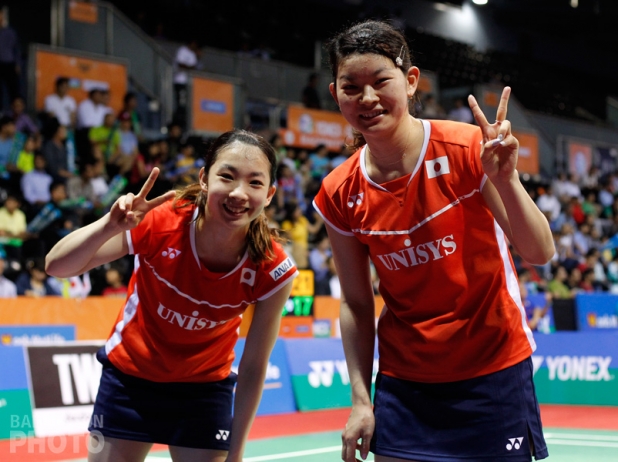
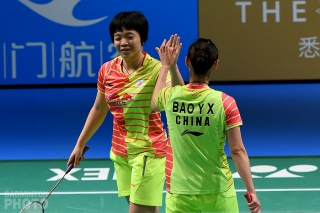
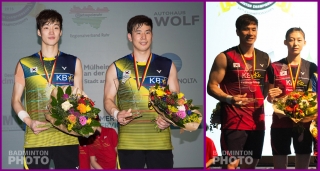
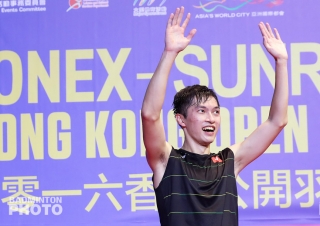
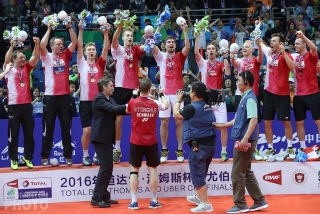
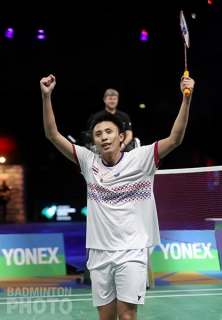
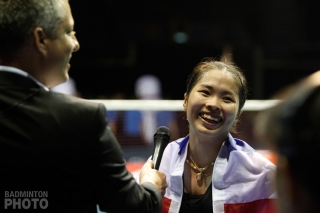
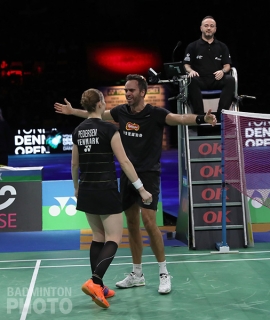
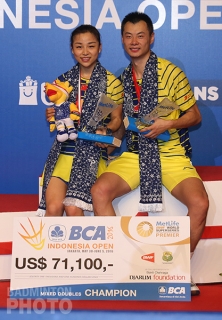
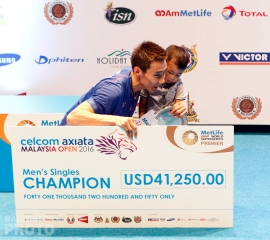

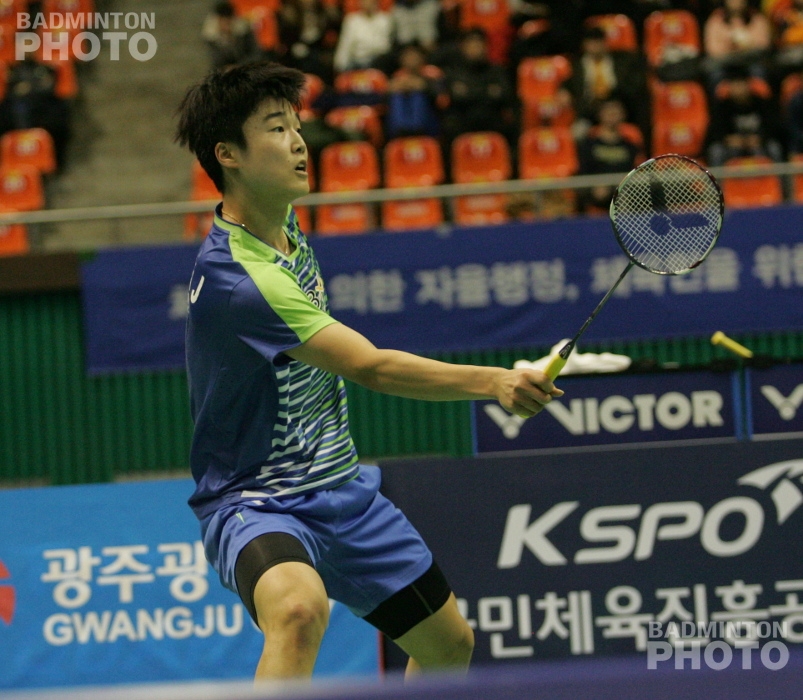
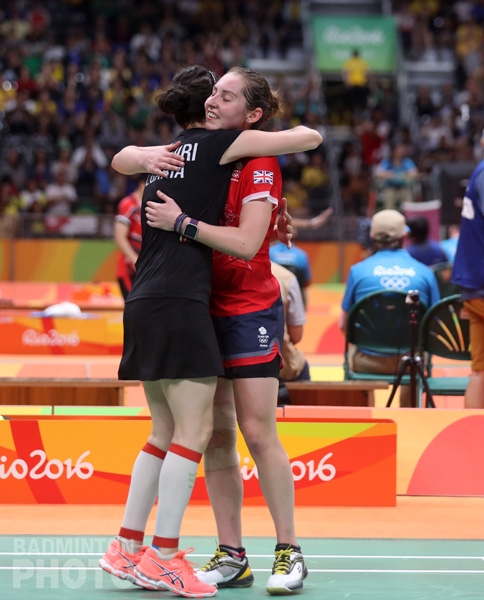
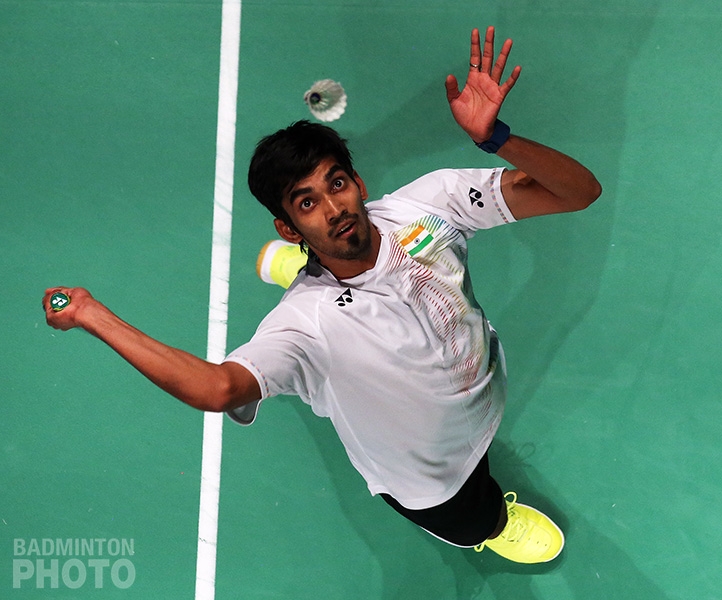
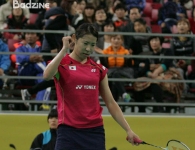
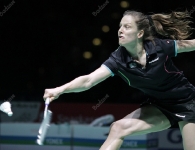
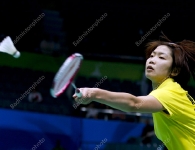
Leave a Reply